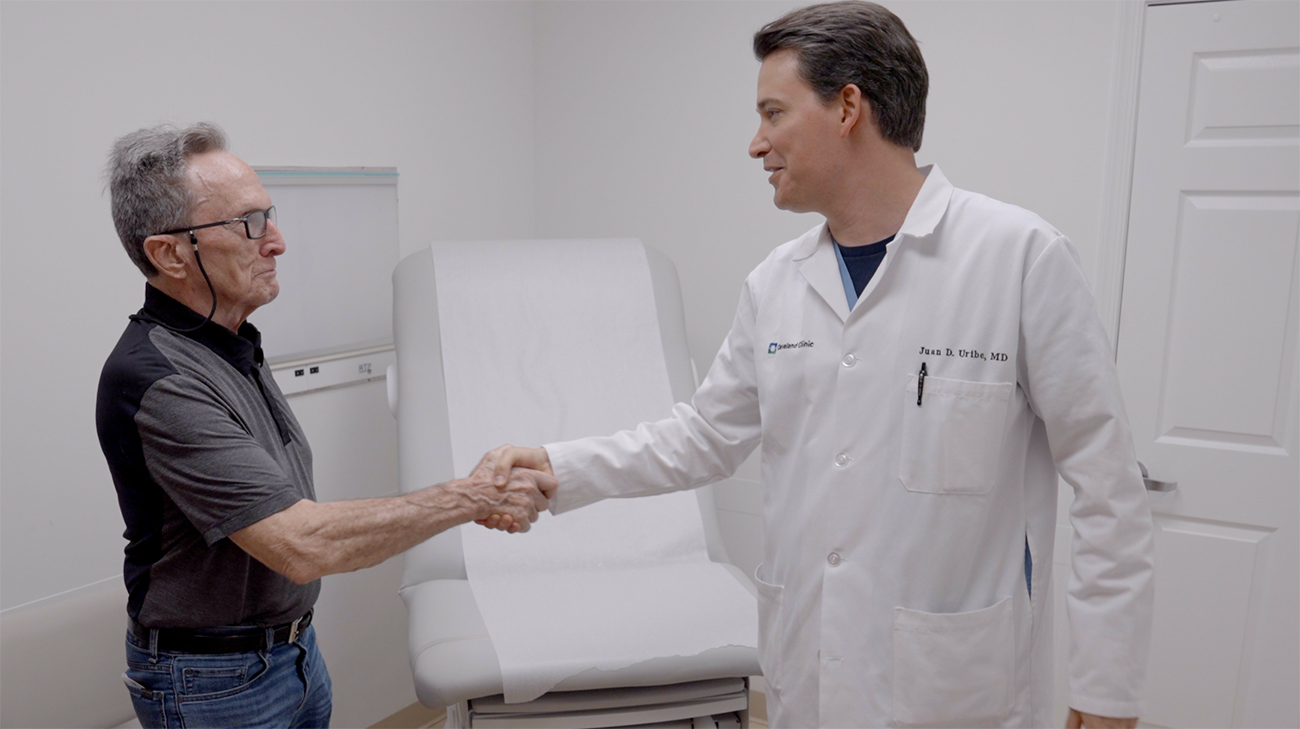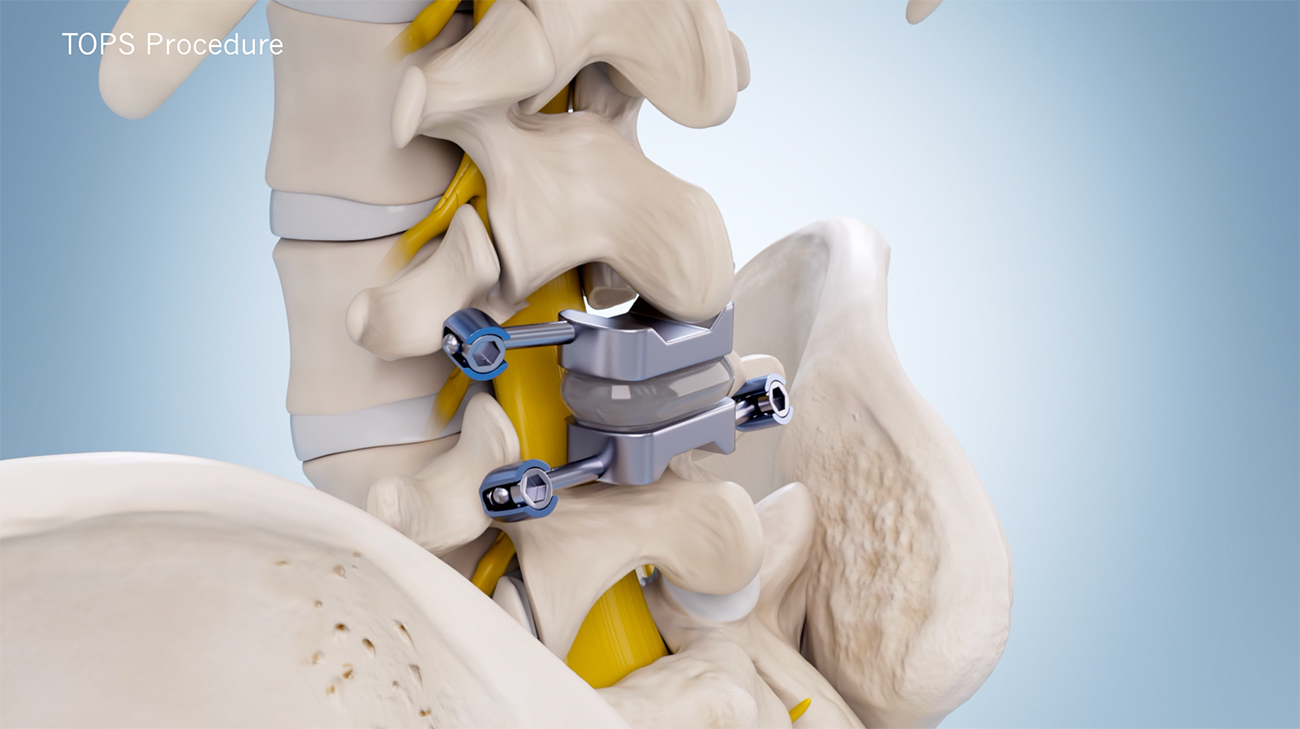“My back is back,” Jim Crowley says with delight.
The 82-year-old had been dealing with back pain since an injury when he was 25 years old in 1968. But after undergoing an innovative new surgical procedure at Cleveland Clinic Indian River Hospital recently, he is back to “my pre-1968 healthy back.”
He no longer has the pain, numbness and tingling feeling that he had experienced before, which he describes as “hell.”
“It got to the point where I could not stand up for more than a couple of minutes,” Jim says about something as simple as making a sandwich. “I would be ready to collapse on the right side after a couple of minutes. I knew I had to do something.”

Jim’s condition was severe, says Juan Uribe Villa, MD, a neurosurgeon at Cleveland Clinic Indian River Hospital. He had three issues at once: lumbar stenosis, which is a narrowing of the spinal canal in the lower back; foraminal stenosis, which is a narrowing that affects the neural foramen, a series of openings on both sides of the spine; and spondylolisthesis, a condition in which one of the vertebrae in the spine slips out of position and puts pressure on the vertebra below it.
“When you’re to this point there’s really no need to consider delaying the inevitable. Sometimes surgery is the best option once you exhaust any other conservative measures,” Dr. Uribe says.
Jim was an ideal candidate for the TOPS (Total Posterior Spine) procedure, an alternative to spinal fusion surgery that is a “game changer in terms of spinal fusions or spinal techniques,” Dr. Uribe says.
“I was ready to change my life,” Jim says. “Cleveland Clinic was the means by which I could do that. It’s the best thing I ever did in my life.”
Just like in a spinal fusion procedure, Dr. Uribe removed bones and tissues that were pushing on the nerves and causing Jim pain. But instead of placing rods to fuse the spine, Dr. Uribe replaced the damaged joint with a mechanical implant that stabilizes the spine while still allowing motion in all directions. This mechanical implant allows patients to bend, twist and flex, which allows for a more natural motion in the spine, reduces stress on nearby joints and often leads to a faster recovery, Dr. Uribe says.
There is no need for a brace afterward, or for the patient to have to stay in bed. Movement is encouraged right away after surgery.
“Within two weeks after the hour-long the surgery, I was back to my pre-1968 healthy back,” Jim says. “I’m not held back from doing anything. I can’t say enough about the gratitude I have for what they’ve done. Thank you, Cleveland Clinic.”
Related Institutes: Neurological Institute

